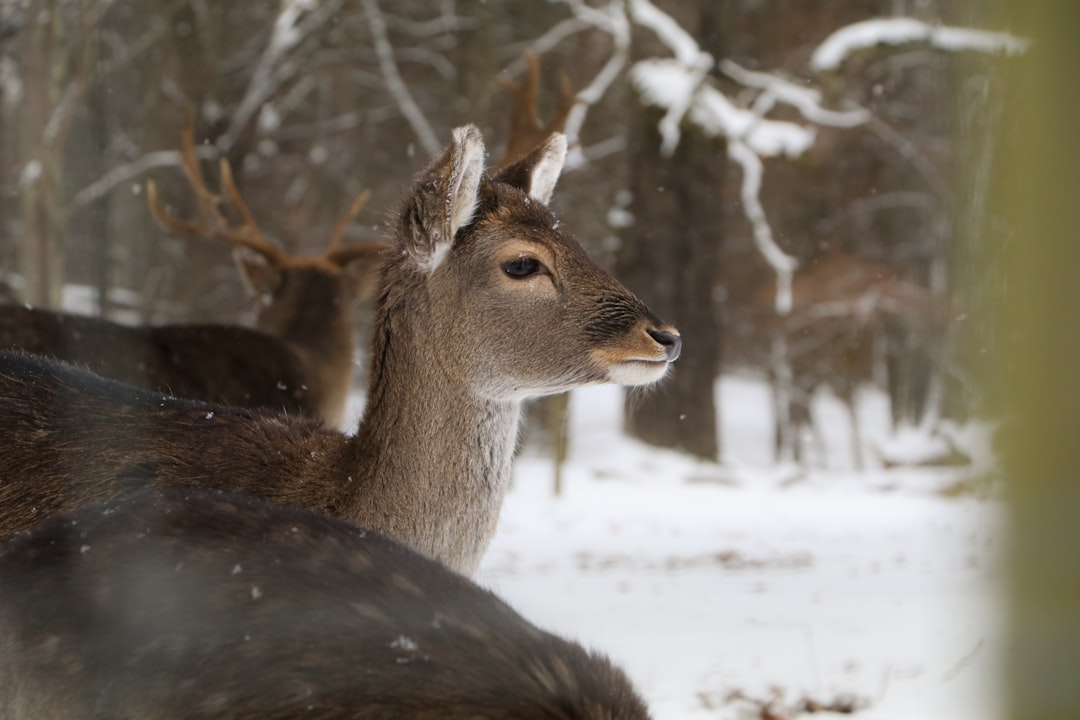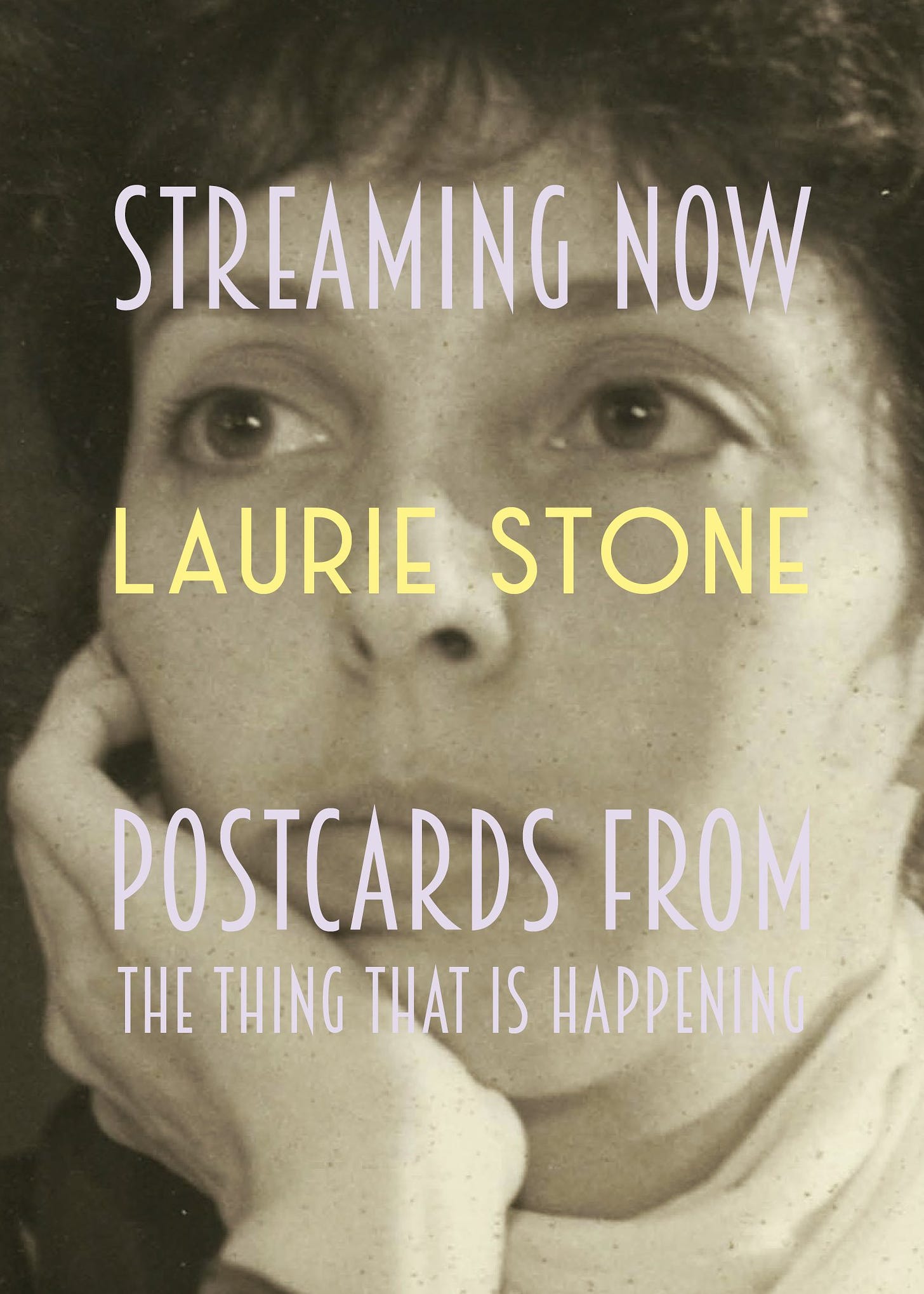
This is the first installment of “Notes on Another New Life,” a new monthly column by Oldster contributor .
It snowed last night, and all my mistakes are cold and beautiful. Every morning I wake up with the same question until I remember I, too, will soon be a blank screen. When I was a kid they called it snow, the nothing on TV, but you could see it trying to form a question. I don’t meditate. It’s rare a dream doesn’t melt before I can hold it, and I’m happy to tell you this because my real mind is a broken web you don’t want to know from. Any day, morning, noon, and night, I will take instead of sleep the look of trees outlined in hope for a better past.
The other day, Richard and I spoke about things you can imagine and can’t make real. He said, “You are not how you look.” I said, “How do I look?” He said, “You look like a pushover. You are small, and you smile easily.” I said, “I thought I looked like a large and dangerous rodent.” He said, “That, too.”
We were driving to see my beloved plastic surgeon. If you were a couch, you wouldn’t want just any upholsterer. During my appointment, I had Botox between my eyebrows and filler around my mouth. As a vampire, I’d be good at coming out of the shadows. On the ride home, we listened to Mendelssohn’s “String Quintet No. 1 in A major,” composed when Felix was 17. At 17, I left home for good. At 17, Richard married a girl named H from the village where he lived in Leicestershire. I watched him at the wheel. He has a good profile.
Just when I think he won’t leave me, an owl flies away from the Central Park zoo. We’re too old to split up—right? People older than us go solo. A friend on Facebook posts pictures of the owl, looking happy on a branch here and there in the park. The friend lives at the border of kindness and wildlife, along with the squirrels in Tompkins Square Park. I want freedom for the owl. Maybe less so the people around me? The love my friend feels for animals is all I know about him, really, and it’s enough. One bright flash of love is enough.
Love is the subject of Room at the Top (1959, Criterion). We watched it the other night with one computer between us, the way we watch what we watch, sipping drinks. The movie stars Laurence Harvey as Joe and Simone Signoret as Alice in a black-and-white England like the one where Richard grew up. Harvey is tall and beautiful, and he enters the scene as a knife. The “top” of the title refers to class. The movie seems to be about class, and in a sense it is. It’s about what happens to a person who can’t feel himself apart from his rage. Rage about a system that has fixed the odds of a life like Joe’s. He moves from his bombed out village in the far north to a town further south in Yorkshire, where there are more opportunities for work, and quickly he scans the terrain like a bird of prey, himself, setting his sights on the daughter of the richest industrialist in the area.
He knows he’s sex, and the daughter is his ticket up. Using sex to advance socially is a plot device more traditionally attached to women than to men, and this is one of the ways that Joe is an outlier. He’s 25. Harvey was 31 when he shot the film, a Lithuanian Jew born Zvi Mosheh Skikne. His family had moved to South Africa, and then, after the war, to the UK. Something of the heat of having to learn plummy vowels seems to warm his performance, which needs to be lightning opposite Signoret’s Alice, another social outlier, a woman unhappily married and older than Joe by 10 years. Signoret is so fucking sexy and alive in the part, the camera just wants to keep looking at her and Harvey with their heads touching.
Joe is callow and at times brutal to Alice, and too late he learns from her there’s no life in life without kneeling to your erotic nature. The truth of your erotic nature is actually something the class system can’t touch if you don’t let it, she explains.
It’s a great film. Jack Clayton directs. The screenplay is by Neil Paterson and Mordechai Richler (uncredited), based on the novel by John Braine. Signoret won an Oscar as best actress that year. The screenplay won for best adapted screenplay, and Harvey was nominated as best actor. Even when he’s as animated as it’s possible for him to be, with that caramel baritone, you can see how a few years later he will be perfect to play the robotic assassin in The Manchurian Candidate (1962).
Last week we were back in the city for an event at Town Hall, where PENamerica, the organization that supports writers and free expression, gave out awards. I’d been long listed for a prize for books of essays but hadn’t made it to the finals. I went to cheer on the others.
It’s wonderful, falling out of the need for things to go a certain way. It’s like falling in love when you can see that first kiss. I sat next to Richard at the event, and I kept taking his hand because I understood that the love we had built like a house under a crater was going to matter most. I’m glad I didn’t realize this earlier, and I’m glad when I did realize it he was in the next seat.
Lately in some quarters where it isn’t dark enough, I’m seen, I worry, more as a chair that isn’t going to change shape, that has already found its fixed shape, than I am seen as a body of water that is never going to appear the same twice. I’m so used to being hurt and angry when I have lived an easy life. I’m so relaxed with the amount of indignation I feel for being seen as either a chair or a body of water, and when I say relaxed I mean practiced. I’m so used to being in this state I’m surprised by feeling something else. It’s the same feeling but less of is. Not stepping off a cliff but stepping off a curb.
There was a gathering after the PEN event. I congratulated one of the winners. She said, “We’re all going to get Covid, right?” I said, “No.” That morning before Richard and I took off, three deer had stood motionless in a field outside our windows, dark figures against the white snow. Then a fourth deer dashed into the picture, and the deer began to sniff each other, and the story became a party. Their faces looked like the Jew mice drawn by Art Spiegelman in Maus. The Jew mouse face stands for the comedy of having no face in particular, and sometimes you want that way to disappear.
Later, back at the apartment where we stayed, I said to Richard, “Love is the most important thing you are going to have in a lifetime, it has just occurred to me.” I said this not because people say that to comfort themselves for having otherwise boring lives, but because I could see that getting an award or not getting an award, driving to the city or not driving to the city, all of that was fun because of Richard, and almost everything else was fun as well. And it was easy to forget that no one else could possibly care and that our love wasn’t the subject. Love itself was the subject.





Oh man, this is a good news day now! Happy to have more of you, Laurie. You and Sari make a fabulous team.
Beautiful writing! I also loved watching room at the top, even though Signoret’s character pays usual price for defying patriarchal convention. (She joins the ranks of Hepburn and Bergman and Taylor in that!) But if you stop watching enough before the end she’s super sexy and inspiring! I might have to create a device that stops these old films right before they begin punishing the strong, cool women — we forget the endings and only remember the cool parts, yes, but somewhere in the back of our minds their punishment lurks as a (shabby) lesson to us!